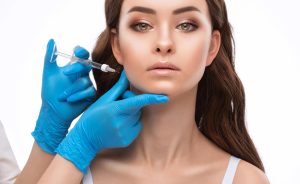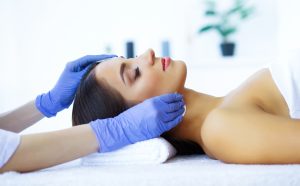Most women in their 30s don’t expect hormones to be the reason behind their low energy, mood swings, or stubborn weight gain—but the reality is more nuanced. Hormonal shifts can begin long before menopause and often go unnoticed or misdiagnosed. The conversation around hormone therapy tends to exclude younger women, yet this is precisely the stage where early intervention can protect long-term health, vitality, and emotional balance.
The Myth That Hormone Therapy Is Only for Menopause
One of the biggest misconceptions about hormone therapy is that it’s only for women nearing or past menopause. In reality, hormonal imbalances often begin much earlier—and they don’t wait for your 50th birthday. The modern lifestyle plays a major role: chronic stress, poor sleep, over-exercising, processed foods, and long-term birth control use can all disrupt your natural hormone rhythm. These disruptions can show up in your 30s as subtle shifts—irregular cycles, fatigue that no amount of rest fixes, or emotional ups and downs that feel out of character. Many women are told these symptoms are “just stress” or “normal,” but that narrative often overlooks deeper root causes. Functional providers are now recognizing that early intervention with bioidentical hormone therapy can help prevent worsening imbalances, supporting your body before symptoms become more disruptive or permanent.
Early Signs of Hormone Imbalance in Your 30s
Hormonal imbalance in your 30s doesn’t always look like something dramatic. In fact, it often shows up in everyday frustrations that get brushed off as “normal stress” or “just getting older.” But these symptoms can signal deeper shifts in estrogen, progesterone, testosterone, and cortisol—long before traditional blood tests raise any red flags. Here are early signs many women overlook:
- Feeling constantly tired, even after a full night’s sleep This may point to adrenal dysfunction or low cortisol rhythm, not just a busy schedule.
- Worsening PMS or irregular cycles More intense cramps, mood swings, or unpredictable periods could mean estrogen and progesterone are out of sync.
- Brain fog or difficulty focusing When hormone levels drop, especially progesterone, it can impact memory and mental clarity.
- Increased anxiety or emotional reactivity Fluctuations in estrogen affect serotonin levels, which can heighten anxiety or cause mood instability.
- Unexplained weight gain, especially around the midsection This can be linked to insulin resistance or elevated cortisol, not just diet or exercise changes.
- Low libido or vaginal dryness These aren’t just menopause symptoms—they can also result from early drops in estrogen or testosterone.
- Changes in skin and hair Dull skin, adult acne, or thinning hair can all trace back to shifting hormone levels that impact collagen and oil production.
Recognizing these early signs means you can take action before imbalances progress.
The Role of Bioidentical Hormone Replacement Therapy (BHRT)
Bioidentical Hormone Replacement Therapy (BHRT) uses plant-derived hormones that are chemically identical to those produced by your body. This subtle difference matters—because your cells recognize and respond to these hormones in a more natural, balanced way. Unlike conventional hormone therapy, BHRT can be customized based on your specific symptoms and lab values, even if you’re still having regular periods. What’s often overlooked is that BHRT isn’t just about treating hot flashes or night sweats; it can support cognitive clarity, emotional resilience, and even skin elasticity in your 30s. For many women, BHRT acts more like prevention than correction—helping to stabilize hormone fluctuations before they turn into chronic fatigue, thyroid dysfunction, or metabolic issues. It’s not about replacing what’s lost, but optimizing what your body is already trying to regulate.
How Hormone Imbalance Affects Skin, Weight, and Energy
Most women don’t connect hormonal health with skin quality, body composition, or daily energy—but the connection runs deep. Estrogen and progesterone help maintain collagen levels, so early imbalances can lead to dryness, dullness, and even breakouts. Testosterone, often overlooked in women, supports lean muscle and fat distribution; when it’s low, you might notice softness in areas that used to feel toned. And cortisol, your stress hormone, when chronically elevated, can disrupt sleep and blood sugar—leaving you tired but wired, craving sugar, and storing fat around the waist. These aren’t just surface-level annoyances; they’re signs that your body’s internal systems are off rhythm. Addressing hormone balance often results in clearer skin, better body response to exercise, and steady energy—without reaching for another coffee or skincare trend.
Is BHRT Right for You? Questions to Ask Yourself
Are your labs “normal,” but you still don’t feel like yourself?
Many women in their 30s are told their hormone labs are within range, yet they continue to experience fatigue, mood swings, or irregular cycles. Standard labs often measure a wide range that doesn’t reflect your personal baseline or the optimal levels for how you feel. BHRT can address the gap between feeling “fine” on paper and actually thriving.
Are you noticing changes that don’t match your lifestyle?
If you’re eating well, exercising, managing stress—and still gaining weight, feeling foggy, or losing muscle tone—your hormones could be working against your efforts. BHRT supports your body’s internal balance, helping it respond better to the healthy choices you’re already making.
Have you had long-term birth control use or chronic stress?
Decades of hormonal birth control or constant stress can suppress or deplete your body’s natural hormone rhythms. Even if you stopped the pill years ago, its effects can linger. BHRT can help restore that rhythm gently, rather than forcing symptoms to normalize on their own.
Are your symptoms impacting your relationships, work, or identity?
When hormone imbalance starts interfering with how you show up in your life—snapping at loved ones, losing confidence, withdrawing socially—it’s not “just stress.” It may be your body’s call for deeper support. BHRT isn’t a quick fix, but it can be a powerful tool for reconnection and clarity.
Conclusion: Your 30s Are the Perfect Time to Tune In
Hormonal changes don’t wait until menopause to show up—and neither should your response. If you’re in your 30s and noticing shifts in your mood, energy, skin, or weight that don’t add up, it might be time to explore what your body is trying to tell you. Bioidentical hormone therapy offers a thoughtful, personalized approach to restoring balance and helping you feel more like yourself—inside and out.
Ready to learn if BHRT is right for you? Visit us at Genevieve Aesthetic or call 704-286-8482 to schedule your personalized consultation today.




